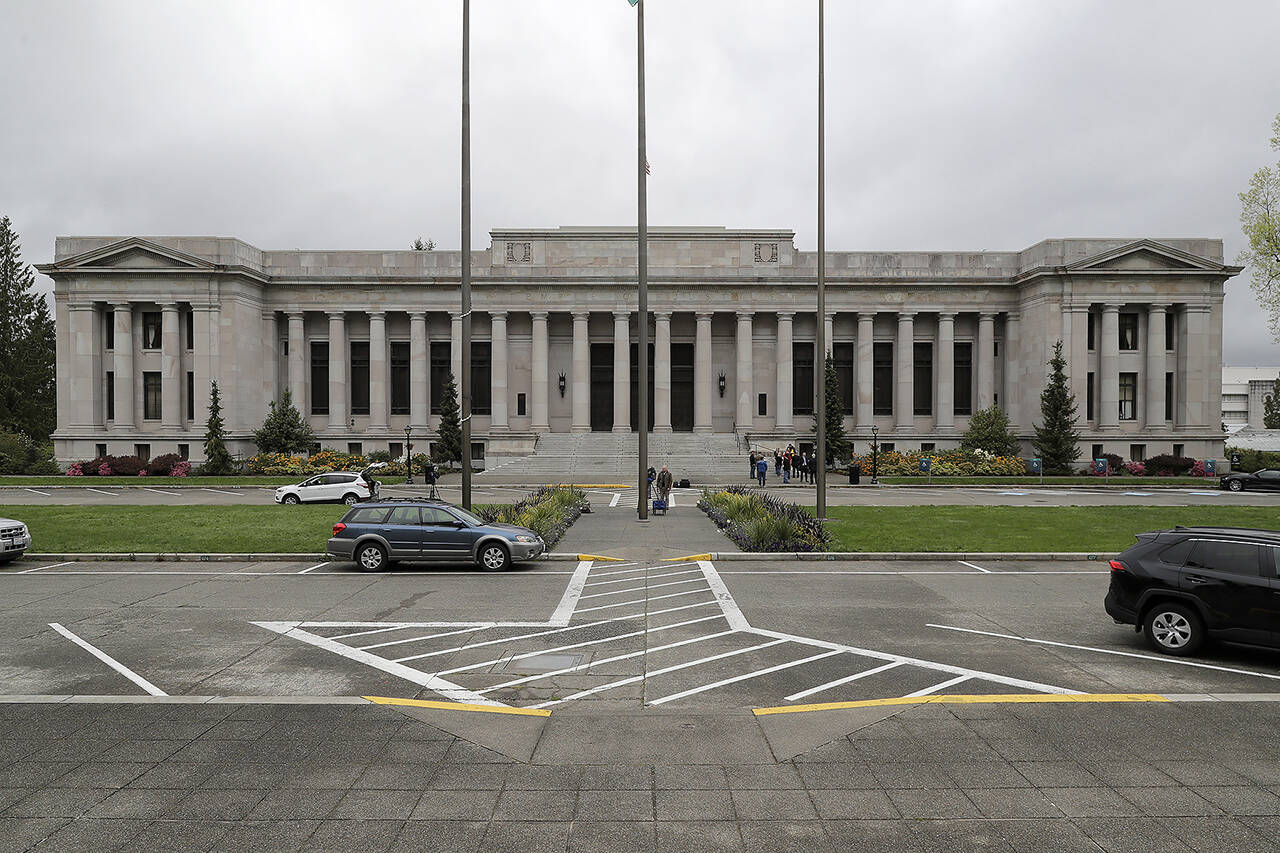OLYMPIA — Fare enforcement on public transit is legal but not the way a Snohomish County sheriff’s deputy handled it on a Community Transit bus five years ago, the state Supreme Court ruled Thursday.
In a 5-4 ruling, the majority concluded the deputy wrongfully detained a man after he failed to show proof of fare payment while riding a Swift bus — though they disagreed whether the officer’s actions exceeded his authority or violated the rider’s constitutional rights.
And the lead opinion emphasized the decision dealt narrowly with the circumstances surrounding the bus rider’s encounter with deputies, and did not invalidate the means by which fare enforcement is deployed by transit agencies across the state.
“We do not strike down any statute permitting designated persons to request proof of fare payment on barrier-free transit systems,” Associate Justice Mary Yu wrote in the lead opinion. “We reject only the particular method of fare enforcement used here, given the lack of legal justification in the record.”
The decision ensures transit agencies can keep collecting fares and enforcing payment.
“We are reviewing the ruling as well as our own procedures to ensure we are in compliance with the law and treating all of our customers fairly,” Community Transit CEO Ric Ilgenfritz said in a statement.
He stressed the virtues of the agency’s use of Service Ambassadors to handle fare checking and be a resource for customers with queries on how to pay. This model, he said, “has been successful in helping customers learn how to use transit and has been adopted by other agencies as an industry best practice.”
Community Transit’s Swift rapid transit buses are what’s called “barrier-free transit.”
Riders pay at a kiosk before boarding or use a valid ORCA card, which serves like a debit card for traveling on transit in the Puget Sound region. It’s an honor system, though someone might ask for proof of payment.
Almost five years ago, Zachery Meredith got on a northbound Swift Blue bus.
In Everett, deputy Thomas Dalton and his partner boarded and began checking for fare payment. Passengers are supposed to pay at the stations before getting in through one of three doors, which helps keep the buses moving.
One deputy asked Meredith for proof of payment or a transit card, which he didn’t have, according to court documents. The deputies ordered him and others who reportedly didn’t pay to get off the bus and asked for identification.
Meredith allegedly gave a fake name and didn’t have ID. Deputies didn’t find a record of the name provided after two checks, so they handcuffed him but did not give him the Miranda warning.
Then a sergeant arrived and used a fingerprint reader intended for when officers had probable cause to arrest someone but couldn’t identify them otherwise. The device identified him as Zachery Meredith, who had two warrants out for his arrest.
But because the deputies did not know it was Meredith at first, they could not know he had a prior fare evasion charge in the past year, according to the court opinion.
Meredith was arrested, jailed and later convicted by a District Court jury of a gross misdemeanor for making a “false or misleading material statement.” He was sentenced to 58 days in jail, which he already served.
In the trial, his attorney moved to suppress evidence of the false statements, contending Meredith was “unlawfully seized” because the deputy lacked reasonable suspicion a crime — fare evasion — had been committed when he was contacted and ordered off the bus. The motion was denied.
Tobin Klusty, Meredith’s attorney, argued to the Supreme Court that the state constitution provides individuals with a right to privacy and protection against “unwarranted government intrusions into private affairs.” Klusty argued Meredith’s detaining was such an intrusion.
Yu, Chief Justice Steven Gonzalez and Justice Sheryl Gordon McCloud agreed in the lead opinion.
“The trial court here concluded that the disturbance was justified by statute. As applied to the record presented in this case, the majority of this court does not agree,” Yu wrote.
Justice Barbara Madsen and Justice Pro Tem George Fearing, in separate concurrences, concluded that because state law barred the deputy from acting in the manner it did, they did not need to consider the constitutional question.
Madsen said she did not believe a police officer asking a bus rider for proof of payment or an ORCA card amounted to an unlawful seizure.
“Because there was no proof that Deputy (Thomas) Dalton was designated as a fare enforcement officer, or that the fare enforcement statute authorizes a law enforcement officer to act as a fare enforcement officer, Deputy Dalton had neither the authority of law nor a reasonable suspicion that a crime had been committed to justify the seizure,” she wrote.
Justice Debra Stephens, writing in a dissent, found no faults with Dalton’s conduct in his encounter with Meredith on and off the bus. She wrote counter to the majority’s assertion, it did deliver a “sweeping holding: that contact with a police officer checking fares on a barrier-free bus amounts to an unconstitutional seizure.”
Continuing, she wrote, “An encounter with armed and uniformed police officers is not a seizure in the absence of some additional coercive display of force or authority. In addition to the public nature of the encounter, we must assume Meredith knew that proof of payment could be requested and that he could be cited and ejected from the bus for failure to provide payment because that is the nature of barrier-free transit.”
Jerry Cornfield: 360-352-8623; jcornfield@heraldnet.com; Twitter: @dospueblos.
Talk to us
> Give us your news tips.
> Send us a letter to the editor.
> More Herald contact information.

























